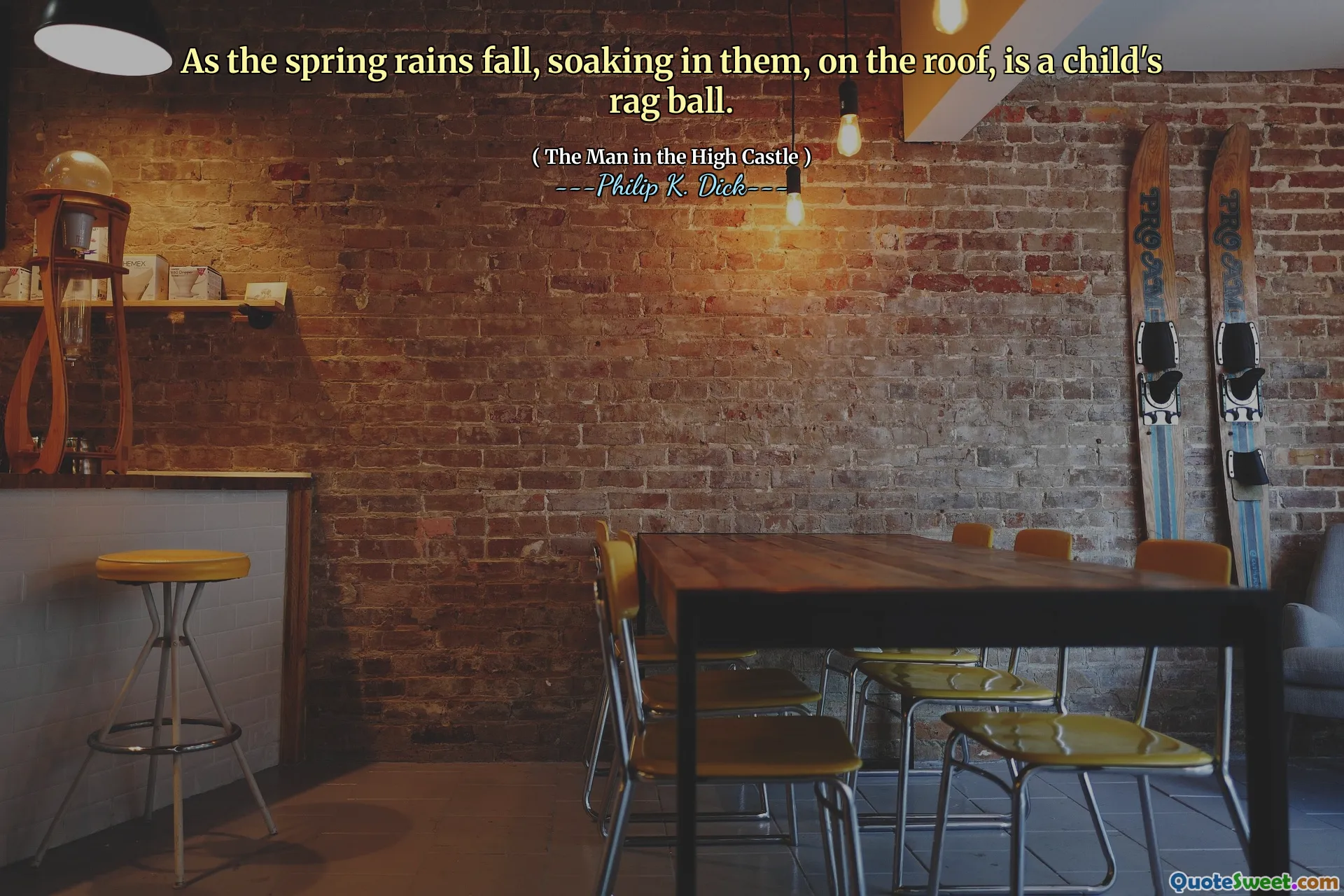
As the spring rains fall, soaking in them, on the roof, is a child's rag ball.
In Philip K. Dick's "The Man in the High Castle," the imagery of a child's rag ball resting on the roof during spring rains evokes feelings of innocence and neglect. The contrast between the vibrant life symbolized by spring rains and the abandoned ball suggests a loss of childhood amidst a harsher reality. The rag ball serves as a poignant reminder of the simpler joys that become overshadowed by the complexities of the world around it.
This scene encapsulates themes of survival, memory, and the harshness of existence in a world altered by war and oppression. It emphasizes how remnants of innocence persist even in dire circumstances, reflecting both resilience and the bittersweet nature of lost youth. Dick's narrative weaves such profound symbols into the fabric of the story, illustrating the overarching impact of historical events on personal lives and the fragile essence of humanity.











